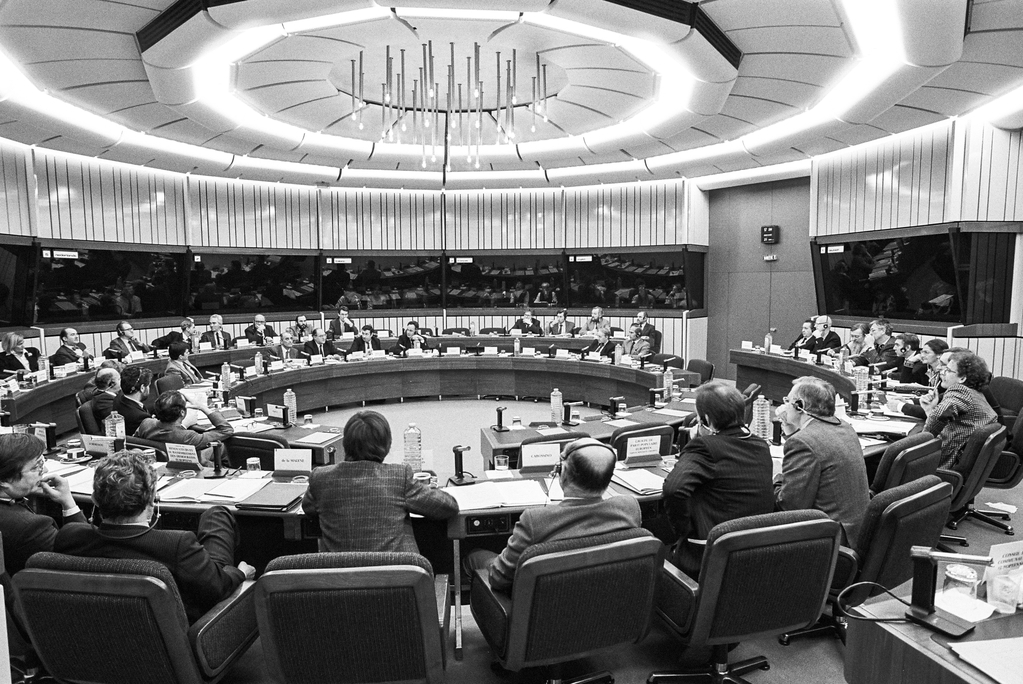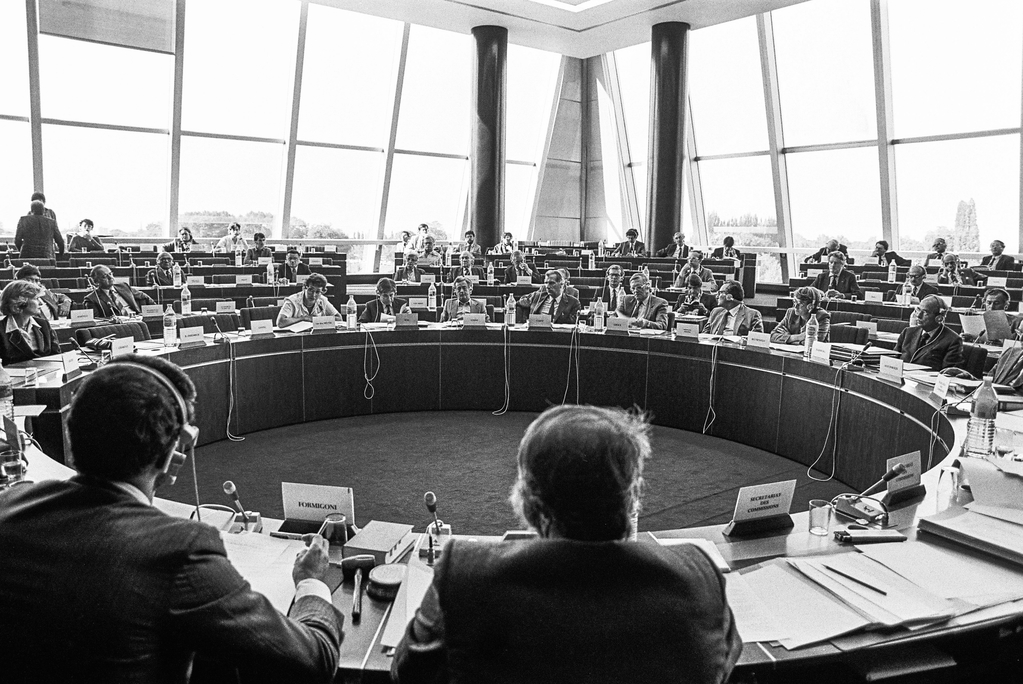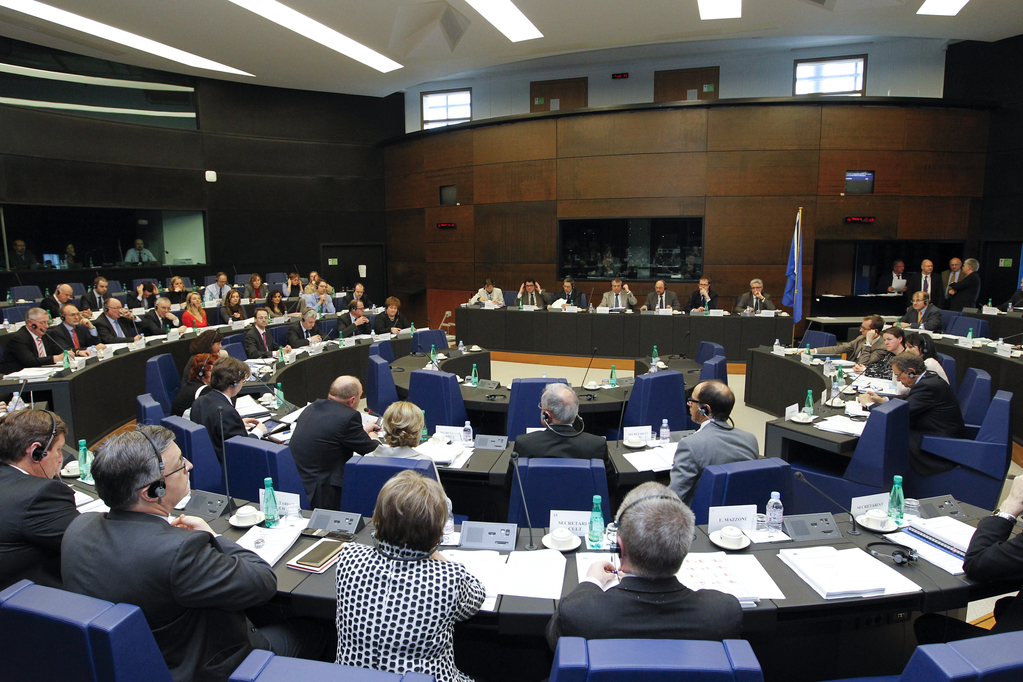From the initial Parliamentary Assembly to the European Parliament, the administration of the institution has developed in tandem with Parliament's evolving role in EU and external affairs. The Parliament’s Rules of Procedure, which give a comprehensive description of its powers, procedures and offices tell us how these administrative units should operate by providing for the existence of such parliamentary governing bodies and a General Secretariat within the Parliament and outlining their roles.
What's in the Archives
The Fonds mainly consist of the working documents, the minutes of meetings and the activity reports and other documents produced by the governing bodies described below. As well as providing information on these groups, these documents also indicate the Parliament’s autonomy in the organisation of its work.
 Meeting of the enlarged Bureau in 1987 © European Communities 1987
Meeting of the enlarged Bureau in 1987 © European Communities 1987
The Conference of Presidents
The Conference of Presidents brings together the President of Parliament and the Chairs of the Political Groups. This political body is responsible for the organisation of the work of the European Parliament and legislative planning, the allocation of functions and powers to committees and delegations and the composition of these committees and delegations. Documents from meetings of the Conference of Presidents have been kept since 1993, though the presidents of the political groups have attended meetings of the Committee of Presidents since 1958.
 Meeting of the Conference of Presidents in September 1984 © European Communities 1984
Meeting of the Conference of Presidents in September 1984 © European Communities 1984
The Bureau
The Bureau is composed of the President of the European Parliament, the fourteen Vice-Presidents and the five Quaestors, who attend in an advisory capacity. It is the governing body of the European Parliament. It draws up the estimates of the European Parliament’s budget and deals with all administrative, budgetary, staff and organisational matters. From the early years of the Common Assembly of the ECSC, the presidents of the political groups regularly attend meetings in what has been called the ‘enlarged Bureau’. Documents from Bureau meetings since 1952 as well as working group documents established within the Bureau have been preserved.
The Quaestors’ Group
Also known as the College of Quaestors, this is body within the European Parliament responsible for administrative and financial matters of direct concern to Members and their working conditions. Documents from meetings of the Quaestors’ group have been kept since 1977, when the Bureau adopted provisions on the establishment and powers of the Quaestors. Notices to Members and thematic files on the subjects of security, buildings and management of Parliament’s Members and staff contained in the archive demonstrate the clearly largely administrative function of the Quaestors.
The Conference of Committee Chairs
This Conference is comprised of the chairs of all standing or temporary committees. It is responsible for ensuring better cooperation between the various parliamentary committees. Since 1983, their meetings have gradually become a permanent fixture in response to the need felt by the committees to coordinate themselves when the enlarged Bureau draws up the agenda for plenary sessions. The existence of a Committee of Presidents which brings together the chairs of the general committees is already referred to in the first Rules of Procedure of the Common Assembly of the European Coal and Steel Community (ECSC) in 1952-1953.
 Conference of Committee Chairs © European Union 2012 - European Parliament
Conference of Committee Chairs © European Union 2012 - European Parliament
The Conference of Delegation Chairs
This group periodically examines all questions concerning the proper functioning of inter-parliamentary delegations and delegations to joint parliamentary committees. Only a small number of meeting files have been kept in the Archives since 1980.